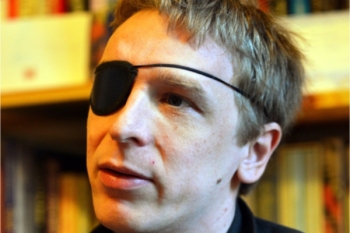Life in the Communications and Engagement team

As Communications and Engagement Officer I am concerned with communicating the fantastic work we do at the John Innes Centre with a range of different audiences across the UK.
It’s my job to share the cool things we learn and spark a curiosity and fascination in our science with other people.
This helps people understand what happens here and the impact our work can have on their lives.
In less than a year at the John Innes Centre, I have picked up and been able to share some fascinating facts, for example, did you know that;
- You can make plastic from peas?
- You can use plants to grow vaccines?
- The genome of wheat is more than 5x bigger than the human genome?
- The slices of samples that our bioimaging team use are so delicate, they use an eyelash to pick them up?
At the John Innes Centre, our work touches on some previously controversial areas, such as genetic modification. Translating this work to the public means keeping an eye on the big picture and the potential of new technologies to solve real-world problems.
One of the ways we reach out to different audiences, is by running events targeted at different groups. At any one time, we can be getting ready for 4 or 5 events.
Yesterday, for example, we held the YSA Science Showcase (which we will have more on in next week’s blog) and I am also currently coordinating; the Spring Fling, the Year 10 science camp, Women of the Future and the Norwich Science Festival, which are all very different events and all at different stages in their planning.
Through these events and others, we want to engage young people with our work and hopefully inspire some of them to consider becoming a scientist themselves one day.
Other events we run during the year, such as Breeders Day and the Science Innovation Showcase are targeted more at industry and highlight where our applied science can be taking out of the lab and go on to have dramatic commercial benefits.
Working with a variety of different people and coordinating different kinds of events keeps things fresh and interesting and one of the pleasures of working in communication and engagement is that there aren’t really ‘typical’ days.
My work has given me the opportunity to present science shows around the world at science festivals from Edinburgh to Dunedin. I’ve written a show for Butlin’s redcoats, presented at the famous Royal Institution and been on the television. I’ve also had to deal with forgetting important props, accidently spilling boiling water on myself in front of an audience and dealing with 250 unresponsive teenagers.
In one show I talked about people who drink their own urine. Using a fake sample, I’d demonstrate this and talk about what urine contains. One day I forgot the sample. I just couldn’t miss out that part of the show; I’ll leave you to guess how I got around the problem…
Working in science communication for such a long time means that I occasionally meet people who I worked with as children who are now studying or working in science, this provides a real sense of satisfaction and reminds me why I enjoy the job so much.
Before joining the team here, I was involved in developing and delivering science communication events in schools and at festivals.
The main difference from that to what I do in my current role is that now I mostly facilitate other people doing the events, so a lot of my job is asking people for favours. Luckily there are lots of keen, creative and talented scientists here to call on.
Having worked from home for many years it has been a real change to be part of a team in an office.
It’s great to be able to bounce ideas of other people, ask for help on occasion and there is usually cake to share too. Moving from home to office work means you can’t eat toast at your desk so easily or jump in the bath, but it also means you don’t check your emails at midnight. I’m also enjoying the company and the new ways of working.
I work part-time at the John Innes Centre and spend the rest of my time doing other communication work.
I suffered a brain injury in 2011 and am involved in awareness raising and research into the condition. I made a radio programme about my accident which won the Royal Society radio award in 2016.
I am still involved in training too, I do some teaching in science communication at UEA and I am a trainer for Famelab international a science presentation competition which runs in 30 countries. I am really looking forward to visiting Hungary and Spain this year to work with some of the contestants.
If I can find some spare-time among all these different passions, I play cribbage, read a lot of non-fiction and play the guitar.
My life is pretty full but as a wise person once told me;if you want something done, ask a busy person.
